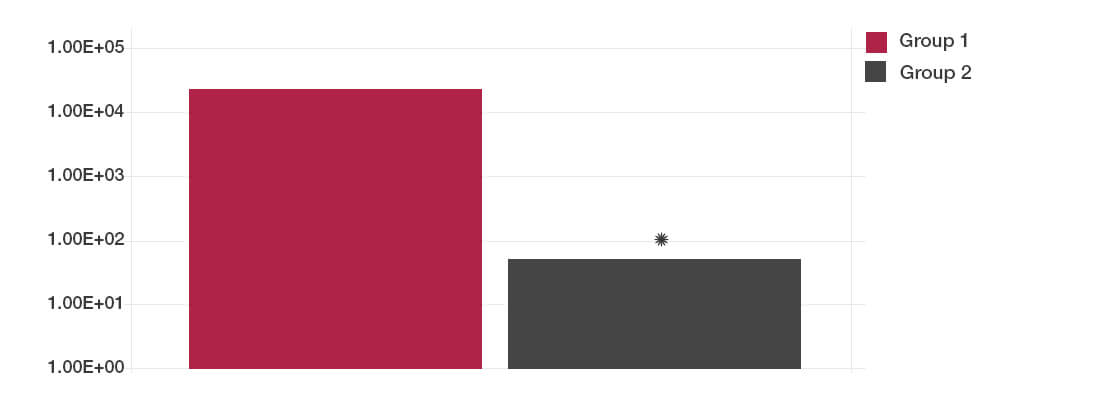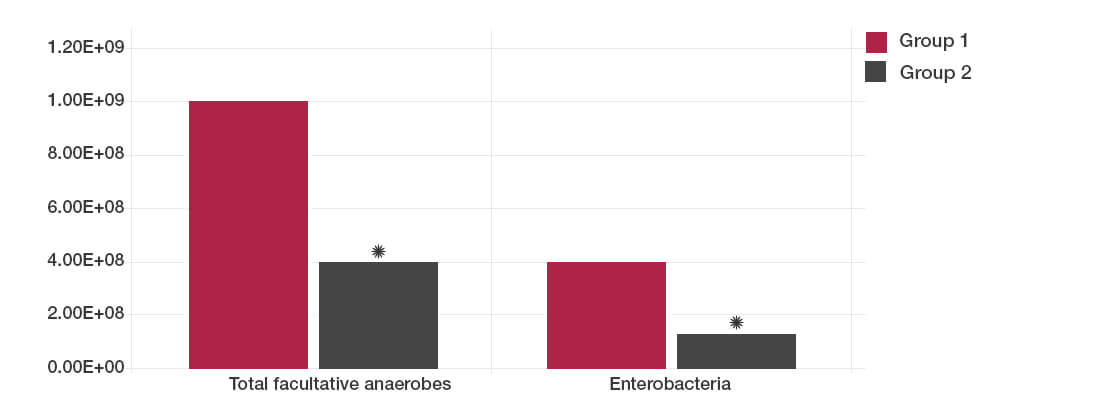Cambridge Probiotic & Antibiotic Trail 2
Effects of probiotics on the composition of the intestinal microbiota following antibiotic therapy
Aim
This randomised, double blind, placebo controlled study investigated the effect of Lab4 probiotic supplementation on antibiotic resistance in the re-growth gut microbiota population following antibiotic therapy.
Method
- The study was carried out at Addenbrooke’s Hospital in Cambridge.
- 155 patients requiring antibiotic therapy were divided into two groups.
- Group 1 received daily one placebo capsule with their prescribed antibiotics for 21 days
- Group 2 received daily one capsule of 25 billion Lab4 probiotics in conjunction with their prescribed antibiotics for 21 days.
- Stool samples were collected at day 1 (before antibiotics), day 7 (the end of antibiotic treatment) and day 35 (4 weeks post antibiotic treatment).
- Antibiotic resistance was evaluated in the microbiota.
Results
- The number of Candida albicans in the Group 1 at the end of antibiotic therapy was significantly higher compared to the Group 2 (*P<0.05).
- The numbers of facultative anaerobes and enterobacteria were significantly lower in the Group 2 compared to the Group 1 four weeks post antibiotic treatment (*P=0.031 and *P=0.014, respectively)
- Numbers of patients harbouring antibiotic resistant enterococci increased significantly post antibiotic therapy in the Group 1 (P= 0.012).
- There was no change in the incidence rate of antibiotic resistance among the patients in the Group 2 post antibiotic therapy.
Conclusion
The supplementation of Lab4 probiotics alongside antibiotic therapy has been shown to reduce the extent of gut microbiota disruption AND to reduce the level of antibiotic resistance within the ‘re-growth’ microbiota.
Reference
Plummer S et al 2005. Effects of probiotics on the composition of the intestinal microbiota following antibiotic therapy.
Int J of Antimicrobial Agents 26:69-74

 Available from the 8th March to the 19th March on our three most popular women’s probiotics.
Available from the 8th March to the 19th March on our three most popular women’s probiotics.  Discount added automatically at checkout for you.
Discount added automatically at checkout for you. 

